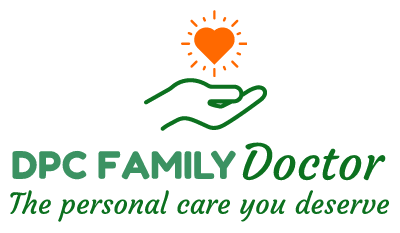The Mediterranean Diet: A Heart-Healthy Way to Eat
If you've ever wondered what makes the Mediterranean diet so popular, you're not alone! This way of eating has been praised for its health benefits, especially when it comes to heart health. But what exactly is the Mediterranean diet, and how can it help you? Let’s break it down in simple terms.
What is the Mediterranean Diet?
Imagine a diet that’s both delicious and good for you—sounds great, right? The Mediterranean diet is inspired by the traditional eating habits of people living around the Mediterranean Sea. It focuses on whole, unprocessed foods rich in healthy fats, fiber, and essential nutrients. Research, including the well-known PREDIMED study, has shown that this diet can lower the risk of heart attacks and strokes by 3.5% to 3.9%.
What does that mean for you? Could making small changes to your diet today help protect your heart in the future? YES.
What Foods Are Included?
A Mediterranean-style diet emphasizes:
Extra Virgin Olive Oil – 4 tablespoons per day
Nuts – A mix of walnuts, almonds, and hazelnuts (30g per day) - Ever wondered why nuts are called heart-healthy snacks?
Legumes – Beans, lentils, and peas
Fresh Fruits & Vegetables – Daily servings for fiber and antioxidants
Fatty Fish – At least 3 servings per week (salmon, sardines, mackerel)
White Meat – Preferably poultry, up to 3 times per week
Wine (optional) – A glass with meals for those who already drink
How Does the Mediterranean Diet Help?
Reduces Inflammation: Chronic inflammation is linked to various health issues, including heart disease, diabetes, and weight gain. One of the main culprits behind inflammation is NF-κB, a protein complex that triggers inflammatory responses in the body. The good news? The polyphenols in extra virgin olive oil and fatty fish have been shown to help block NF-κB, reducing inflammation and lowering the risk of chronic diseases.
Lowers Triglycerides: Omega-3 fatty acids found in fatty fish help reduce triglyceride levels, which are linked to a higher risk of heart disease.
Supports Gut Health: The fiber from vegetables, legumes, and nuts feeds good gut bacteria, which improves digestion and hormone balance.
Regulates Hormones: Fiber helps increase Sex Hormone Binding Globulin (SHBG) levels, which can lower excess estrogen. High estrogen levels have been linked to obesity, breast cancer, and endometriosis.
Why Do Some People Have a Higher Risk for Heart Disease?
While diet plays a big role, genetics and lifestyle also contribute to heart disease risk. If you’re wondering:
Can I reverse heart disease?
How can I lower my risk?
What’s the best diet plan for my health?
We can help! At DPC Family Doctor, we offer a comprehensive evaluation to assess your metabolic health and create a personalized plan.
Click below to schedule a consultation and take control of your heart health today!
Disclaimer: The information in this article is for educational purposes only and does not replace professional medical advice. If you have concerns about your health, please consult a healthcare provider.



